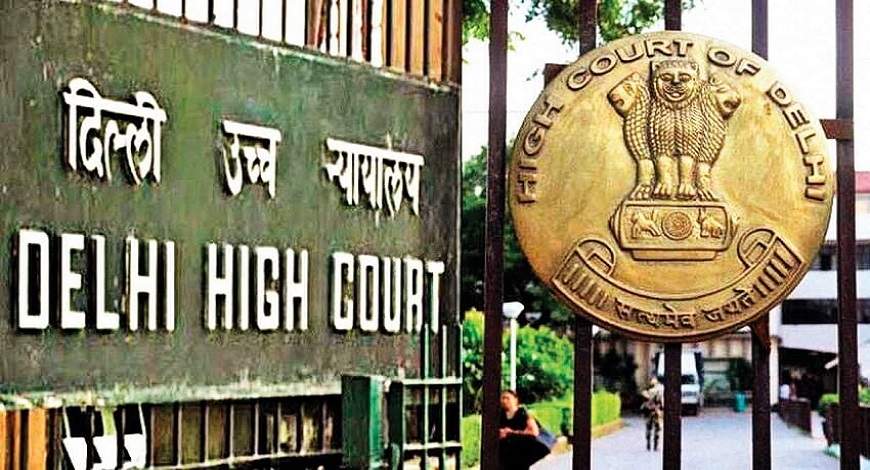Latest News
Case Analysis:Sarabjit Singh .vs. State of NCT of Delhi & Ors.

TITLE OF THE CASE: Sarabjit Singh .vs. State of NCT of Delhi & Ors.
CITATION: Crl. M.C. 2856/2015.
COURT: DELHI HIGH COURT OF INDIA.
BENCH: HONORABLE MR. JUSTICE R. K. GAUBA.
DATE OF JUDGMENT: October 8th, 2018.
PETITIONER: SARABJIT SINGH.
RESPONDENT: STATE OF NCT OF DELHI & ORS.
FACTS:
The present case is on the issues of Negotiable Instrument Act 1881 in India and probably the most awaited one in light of the various difficulties being faced by the clients, appellant all over the country far and wide. A writ petition was filed under article 226 in the Delhi high court by the petitioner of dishonored cheque aggrieved by the director being initiated by the M-Tech Developers Private Limited in a Criminal Case Petition filed by Sarabjit Singh.
The Court after hearing the grievances and on account of the allegations of the dishonored cheque being made against the petitioner decided to take cognizance of the Petition and ordered an inquiry and based on the same issued proceedings against the respondent.
ISSUES:
Whether the Directors of a Company are Liable for a cheque bounce of the Company?
Whether the company can challenge the order of the lower court by a criminal review petition, wherein the order of the Magistrate was set aside?
CONTENTION OF THE PARTIES:
Petitioner
The learned advocates from the side of the appellant argued that the dishonored cheque cannot be treated on par with the trust of the petitioner and that the money should be paid by the company must be of the highest priority. They further added that in his client’s case the cheques had been issued against the account of company M-Tech Developers Pvt. Ltd. acting through the director of the company for the due amount. Its concerned presentation was returned unpaid by the bank with a report saying “insufficient funds”, no payment having been made despite the notice of demand issued. So, a criminal case against the respondent alleging offense under Section 138 of the Negotiable Instruments Act, 1881 having been committed.
The petitioners also referred to M/S. Bilakchand Gyanchand Co. vs A. Chinnaswami case where the scrutiny of the case by the revisional court for purposes of examining as to whether the Metropolitan Magistrate could have exercised the jurisdiction under Section 319 Cr. PC was misdirected.
Respondents
The account of company M-Tech Developers Pvt. Ltd. (second respondent) challenged the ‘reference to the liberty’ application order within the court of Sessions by Criminal Review Petition
The Court accepted the contention of the second respondent and put aside the order of the Metropolitan Magistrate by its order dated 20.02.2015.
Aggrieved by the order of the Revisional court, the current petition was filed under Section 482 Criminal Procedure code which has been resisted by the second respondent.
It must be noted that within the criminal complaint, the second respondent was described (because the accused company which had been acting through its director (i.e. third respondent), the liability represented by the three cheques being of the said company, the said cheques having been issued against its account.
After the said cheques had bounced, the complainant had sent a legal notice of demand. But even it's clear that the third respondent wasn't called upon by the said demand notice to be in control of any personal liability.
Reference was made to the three cheques, which concernedly had been issued against the account of the corporate.
The notice thus was addressed to the third respondent in his capacity because the director of the corporate accused, calling him upon to pay against the cheques which had been returned dishonored.
Judgment
After hearing arguments by both the parties and considering the facts of the case, Since evidence which had come on record showed the complicity of the corporate within the crime, the cheques in question having been issued against its account the court noted further the court opined that the company received notice of demand and not having made any payment in response thereto satisfying the claim of the payee arising out of the cheques, the exercise of jurisdiction by the Magistrate under Sec 319 of Cr. P.C could and will not are interfered with the Court.
Therefore, the complaint together with the accused, it having been summoned under Section 319 of Cr. P.C.
The application on which the order was gone the Metropolitan Magistrate which was put aside by the Revisional Court, was an application moved within the exercise of such liberty.
Document:



































































































